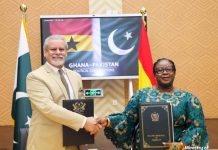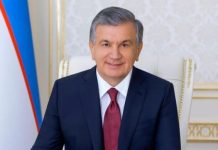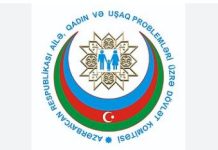The experience and policy of Kazakhstan in the field of maintaining interethnic peace and harmony is of genuine interest to international organizations and states, writes Aiman Zhussupova.
By Aiman Zhussupova, Institute of World Economics and Politics.
Aiman Zhussupova is an expert of the Institute of World Economics and Politics (IWEP) under the Nursultan Nazarbayev Foundation (Kazakhstan)
When Kazakhstan became an independent state in 1991, the risk of interethnic conflicts was one of the most critical problems for the post-Soviet nation that inherited the world’s fourth largest nuclear arsenal.
This was exacerbated by forecasts of large-scale armed conflicts and the risk of loss of statehood. The predictions were not unfounded.
Kazakhstan’s population was split along ethnic and linguistic lines. It was classified as a particularly diverse society in the Index of Ethnolinguistic Fractionalization, calculated in 2001 by US researcher Philip G. Roeder, which analyzed the degree of ethnic and linguistic diversity in various countries. The situation looked even more complicated when applying the theory of overlapping lines of division, according to which the probability of a violent conflict multiplies if two such lines, for instance ethnic and social, overlap.
Clearly aware of these risks, in the early 1990s, Kazakhstan’s first President Nursultan Nazarbayev outlined the key ideas of a new policy in the field of nation-building – the preservation of interethnic harmony, ethnic diversity, and the equality of citizens, regardless of their ethnic and religious affiliations. To strengthen and support interethnic harmony in the country, the Assembly of the People of Kazakhstan, a unique civil society organization, bringing together representatives of 130 ethnic groups, was created in 1995.
The Assembly of the People of Kazakhstan has undergone substantial development over the years and its authority is now recognized internationally. Several public structures of the Assembly have been created: councils of public accord, councils of mediation, a club of journalists, a scientific expert council, a youth movement, an association of entrepreneurs, among others. Furthermore, since 2007, the Assembly has been given power to delegate nine of its representatives to the Mazhilis (lower house of the Kazakh Parliament).
The experience and policy of Kazakhstan in the field of maintaining interethnic peace and harmony is of genuine interest to international organizations and states. Of course, in practice, each country’s situation is unique. Nevertheless, the Kazakh model, which has demonstrated its viability, is studied closely by many, with some countries developing somewhat similar structures.
The United Nations and the OSCE have previously commended Kazakhstan’s model of encouraging interethnic relations based on respect, and its efforts to strengthen the unity of the nation. The Assembly itself has established formal links with the OSCE High Commissioner on National Minorities, the Center for Global Dialogue and Cooperation, and state and non-state structures of numerous countries.
One example of an entity created to pursue similar goals, albeit in a different environment, is the European Council on Tolerance and Reconciliation (ECTR), an NGO that was established in France in 2008 to monitor tolerance in Europe. The ECTR prepares practical recommendations for governments and international organizations to improve interreligious and interethnic relations on the continent. It focuses on combating xenophobia, anti-Semitism and racial discrimination in the modern world. In 2012, the ECTR proposed to the European Parliament a Model National Statute for the Promotion of Tolerance, defining the basic principles and concepts of tolerance, and the principles of relations between various social groups. As part of ECTR’s work, the European Medal of Tolerance was established to honor and reward achievements in the promotion of tolerance in Europe and countering intolerance.
It is clear that the preservation of interethnic harmony is a basic condition for the development of any multi-ethnic country. Today, ethnic Kazakhs account for approximately 68.5% of Kazakhstan’s population, meaning that other ethnic groups make up 31.5%. Nearly 30 years after Kazakhstan gained independence, Nursultan Nazarbayev, who is the chairman of the Assembly of the People of Kazakhstan, reaffirmed his adherence to the principle of unity in diversity, stating in 2020: “Peace, harmony and unity remain the key priorities of state policy. This is a principled position in the field of interethnic relations, and it will not change.” He noted the existing demand for a new inclusive policy in the field of interethnic relations, pointing out the importance of developing measures aimed at deepening the integration processes of society. He also pointed out that the Assembly should put particular effort into consolidating tolerance and preventing xenophobia among the younger generations.
Interethnic accord and a society’s “zero tolerance” policy to any expressions of xenophobia is never always guaranteed. These processes require constant attention. Various factors, such as evolving ethnic composition of a society, socioeconomic conditions and, to a certain extent, external policy factors play a role.
The policy of interethnic relations and strengthening peace and harmony is being continued and developed by the country’s current President, Kassym-Jomart Tokayev. The Assembly of the People of Kazakhstan is there to play an important role in this. Over the last 25 years, the Assembly has evolved from a consultative advisory body to a legitimate advocate of the interests of Kazakhstan’s society, including through parliamentary representation.
The Assembly of the People of Kazakhstan continues to face new tasks to this day. But there is no doubt that over the past quarter of a century it has contributed to interethnic and interreligious harmony in the country. Kazakhstan managed not only to preserve, but also significantly strengthen its socio-political stability. In the conditions of a multi-ethnic and multi-confessional Kazakhstan, this policy became a guarantee of peace, which is the foundation for the successful development of any state.

















